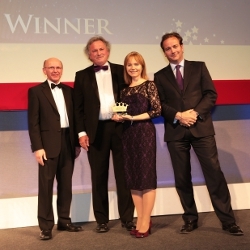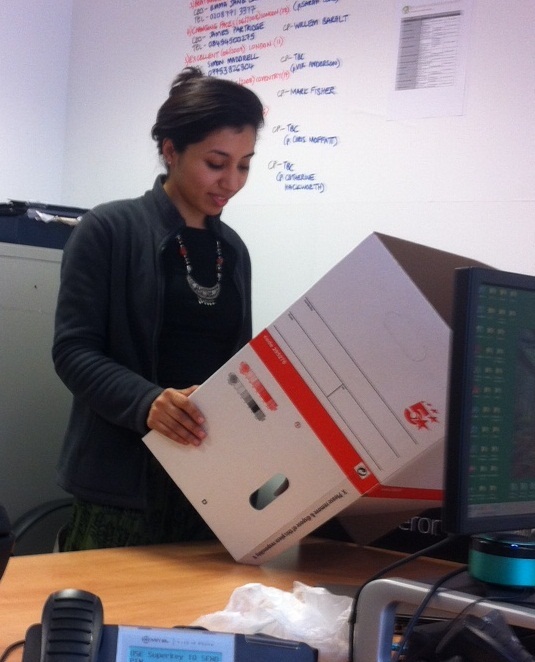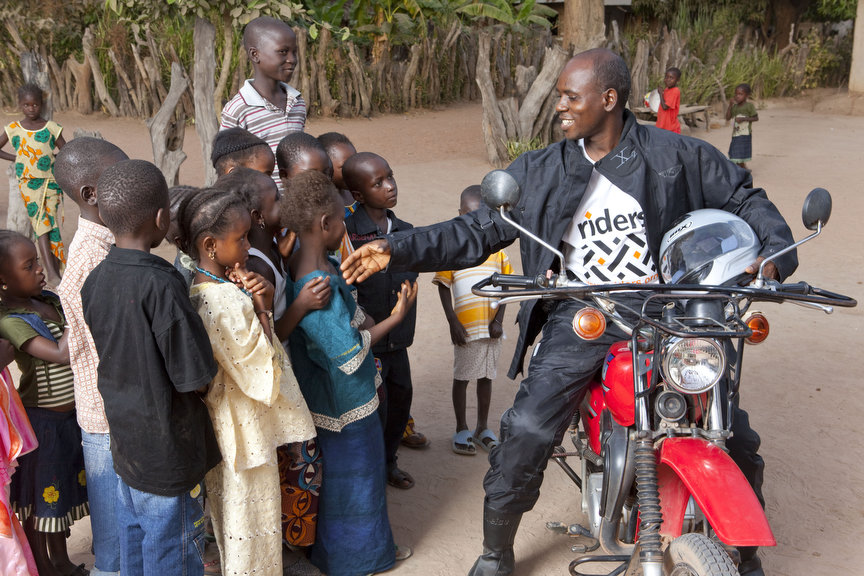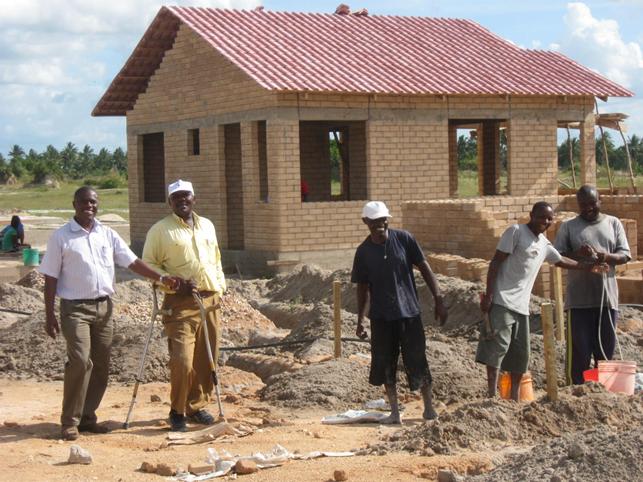PEAS' success is venture philanthropy's success
 Wednesday, June 19, 2013 at 12:18PM
Wednesday, June 19, 2013 at 12:18PM 
PEAS (Promoting Equality in African Schools) has won the International Development and Best Charity (all categories) awards at the 2013 Civil Society Awards. This is in recognition of the innovative young NGO's incredible success in achieving extraordinarily rapid growth via its winning formula for providing sustainable low cost secondary education in sub-Saharan Africa. VPF played an important role in supporting this.
If VPF were a venture capital firm focussed merely on growing the income of its portfolio companies, PEAS would be the equivalent of the one in ten super performers that would allow us to take risks on investments that often fail, but when they win, they win big.
PEAS' income when VPF began supporting them three years ago was around £300k. It has now hit £3m. If VPF had taken an equity stake (not possible in relation to most charities) instead of making a grant, then we would have seen an ROI of 1000% over three and a half years. This would equate to one hell of an IRR.
If we switch to the central metric of social impact, then PEAS has grown from around 1000 to over 8000 students over the same period, which is not far behind the income growth.
How did this happen?
The simple answer is that PEAS' CEO John Rendel is a devoted and very talented entrepreneur with an equally talented team around him.
However, social entrepreneurs need donors as much as 'normal' entrepreneurs need investors. VPF has been a special type of donor to PEAS, by explicitly and quite deliberately supporting its growth in the following ways:
- Kite mark
VPF's rigorous due diligence, performed by VPF members with high-end consulting, corporate and City finance backgrounds, not only acts as a useful operational health-check for portfolio ventures, but also gives them a 'badge of quality' that allows them to attract other supporters more easily. We are akin to a prestigious conerstone investor. This supports growth. - Unrestricted finance
VPF provided initially £25k per year (rising after two years to £35k per year) of UNRESTRICTED grant funding to PEAS. Most funders insist on restricting the use of their money to specific projects, with an insufficient allowance for project management costs, and NOTHING for business development, marketing etc. This is like investing in a factory instead of investing in the company that runs the factory, and stifles the growth of good business models in the third sector. VPF provides unrestricted funding because it wants to see winning ideas scaled up. In PEAS' case, VPF's unrestricted funding allowed management to hire a specialist Monitoring, Evaluation and Reporting Officer to measure PEAS' impact on literacy and numeracy figures, infant mortality and fertility rates etc. This in turn allowed PEAS to apply for funding from larger donors that require sophisticated reporting metrics. One of these was the Department for International Development, with whom PEAS raised £1.2m in 2012. This supports growth. - Access to corporate partnerships
VPF members' wide corporate networks allow us to make high-level introductions to potential corporate supporters. This has resulted in several lucrative partnerships for our portfolio ventures. In PEAS' case, VPF made an introduction to Progressive Digital Media, who have donated tens of thousands of pounds of unrestricted funding to PEAS, and whose support as official communications partner was pre-requsite to the NGO qualifying for the DfID funding mentioned above. This supports growth. - Access to pro bono support
VPF member Catherine Hackworth is a partner at management consultants Oliver Wyman. As well as acting as mentor to CEO John Rendel, Catherine was able to source pro bono support from the firm to deliver a full, professional strategy review, which resulted in a five year plan that has been invaluable in communicating PEAS' ambition to an external audience and uniting the team around a simply expressed common vision of expansion. This supports growth. - Access to High Net Worth supporters
Senior VPF members have an enviable network of HNW contacts with philanthropic genes. In PEAS' case, this led to an introduction to an extraordinarily successful Boltonian businessman, who has poured over £0.5 million into PEAS' expansion, directly funding three sustainable secondary schools in rural Uganda. This supports growth.
VPF has thus been a dedicated and valuable partner to PEAS during this period of phenomenal growth, and while the credit for this achievement lies entirely with John Rendel and the PEAS team, it is testament to the value of VPF as a private sector/third sector portal, that John has been able to exploit the connections VPF has facilitated to such staggering and heart-warming effect.
PEAS' achievement in bringing a sustainable secondary education system to an area where 75% of primary school leavers have no access to any form of secondary education leaves us humbled, and we thoroughly congratulate the whole team and all their supporters on winning this award.
 Civil Society Awards,
Civil Society Awards,  Dfid,
Dfid,  Due diligence,
Due diligence,  Oliver Wyman,
Oliver Wyman,  PEAS,
PEAS,  Pro bono,
Pro bono,  VPF
VPF 


